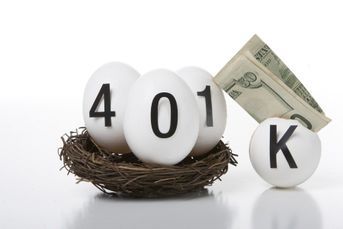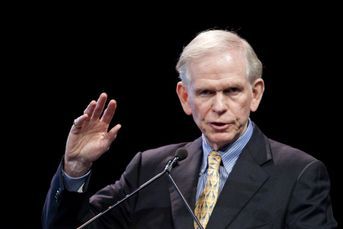Taper next week? No big deal, investors say
A new polls finds that most investors don't think the markets will be roiled if the Federal Reserve begins to cut back its asset purchases - the much talked-about tapering - next week. Is a rally possible?
An anticipated reduction in stimulus by the Federal Reserve that has roiled the financial markets for months will be seen as no big deal if it goes ahead next week, according to a Bloomberg Global Poll of investors.
Fifty-seven percent of those surveyed say they don’t expect a sudden change in the markets because investors already anticipate tapering action by the U.S. central bank. Eight percent see a rally on such news, while just under a third are looking for declines, based on the Sept. 10 poll of 900 investors, traders and analysts who are Bloomberg subscribers.
“A taper-lite seems priced in” by the markets, Greg Lesko, managing director at New York-based Deltec Asset Management LLC, said in an e-mail, referring to what he says will be a small reduction in stimulus by the Fed. Lesko took part in the quarterly survey.
The yield on the 10-year (USGG10YR) Treasury note rose to 2.91 percent at 5 p.m. in New York yesterday from 2.04 percent on May 22, when Fed Chairman Ben S. Bernanke raised the possibility the central bank might cut back its stimulus this year. The MSCI Emerging Markets stock index has fallen 5.5 percent over that time.
A plurality of those polled — 38 percent — expects the central bank to decide at its Sept. 17-18 meeting to start lowering its monthly bond purchases. Another 35 percent see such a step in either October or December. Less than one in four say a decision on tapering will be delayed until next year. The Fed is currently buying $85 billion worth of bonds per month.
Seeing end
The Fed began buying $40 billion of mortgage-backed securities per month in September of last year and then supplemented that with $45 billion of Treasury securities in December. Bernanke suggested to reporters on June 19 that the program might be wound up by the middle of next year.
Investors aren’t convinced. Only 16 percent of those polled expect the Fed to have stopped buying assets by then. One in three thinks the purchases will end later in 2014, while 44 percent don’t expect them to end until 2015 or afterward.
“The tapering will be very gradual,” Robert Kopp, a poll participant and principal at asset management company Systra LLC in Chicago, said via e-mail. The Fed will wait to “see the impact on the market before deciding the next steps.” Kopp sees the asset purchases continuing through 2014.
Raising rates
Investors seem more attuned to the Fed’s intentions when it comes to interest rates, based on the poll’s results. Most policy makers don’t expect to raise interest rates until 2015, according to projections released by the Fed on June 19.
A majority of poll participants agree: Fifty-one percent see the Fed’s first rate increase coming in 2015, with one in three expecting it in the first half of the year. Three in 10 forecast a rate rise next year. The Fed cut its target for the overnight interbank lending rate effectively to zero in December 2008 and has held it at that record low since.
“There doesn’t seem to be a big hurry or need to raise rates anytime soon,” Steve Feiss, an interest-rate strategist at broker-dealer Government Perspectives LLC in Marlboro, New Jersey, said in an e-mail. Inflation is “being very cooperative.” Feiss, who took part in the poll, expects the Fed to begin raising rates in the second half of 2015.
Inflation, as measured by the personal consumption expenditure price index, stood at 1.4 percent in July, below the Fed’s 2 percent target.
Watching unemployment
Bernanke and his colleagues have pledged to hold interest rates near zero at least until the unemployment rate falls to 6.5 percent, as long as projected inflation doesn’t rise above 2.5 percent. Joblessness in August was 7.3 percent.
“I believe it will be several years before we near these targets,” Bryan Kern, a principal at KPM Financial in Charlotte, North Carolina, said in an e-mail. He doesn’t expect a Fed rate rise until the second half of 2015.
While the Fed is seen as being in no rush to boost rates, it will still be quicker off the mark than central banks in other industrial nations, according to the poll.
By the end of 2015, more than 85 percent of investors expect the Fed to have tightened credit. The comparable numbers were 58 percent for the European Central Bank, 35 percent for the Bank of Japan and 70 percent for the Bank of England.
Three-quarters of those surveyed give Bernanke a favorable rating. Almost as many do the same for ECB President Mario Draghi, up from two-thirds in the last poll in May. Bank of England Governor Mark Carney also saw his standing rise in the latest poll, to 59 percent from 50 percent.
Debt default
Investors are optimistic that President Barack Obama and Congress will avoid a U.S. debt default and a government shutdown later this year. More than three in five say they are very confident or fairly confident that a default will be averted, while 55 percent say the same for a shutdown.
Obama and lawmakers have yet to reach agreement on legislation to fund the government in the fiscal year that starts on Oct. 1. The Treasury has said they also need to strike a deal to raise the government’s debt ceiling by mid-October.
Two in five survey respondents say they would hold back on their investments in U.S. markets if no agreement is reached to keep the government running. Forty-three percent say it wouldn’t have an effect.
In the event of a shutdown, investors outside the U.S. are more inclined to pull back on their investments than those inside the country, according to the poll. One in three investors in the U.S. say they’d act that way, compared with more than two in five in Europe and over half in Asia.
The poll was conducted by Selzer & Co., a Des Moines, Iowa-based firm. It has a margin of error of plus or minus 3.3 percentage points.
(Bloomberg News)
Learn more about reprints and licensing for this article.








